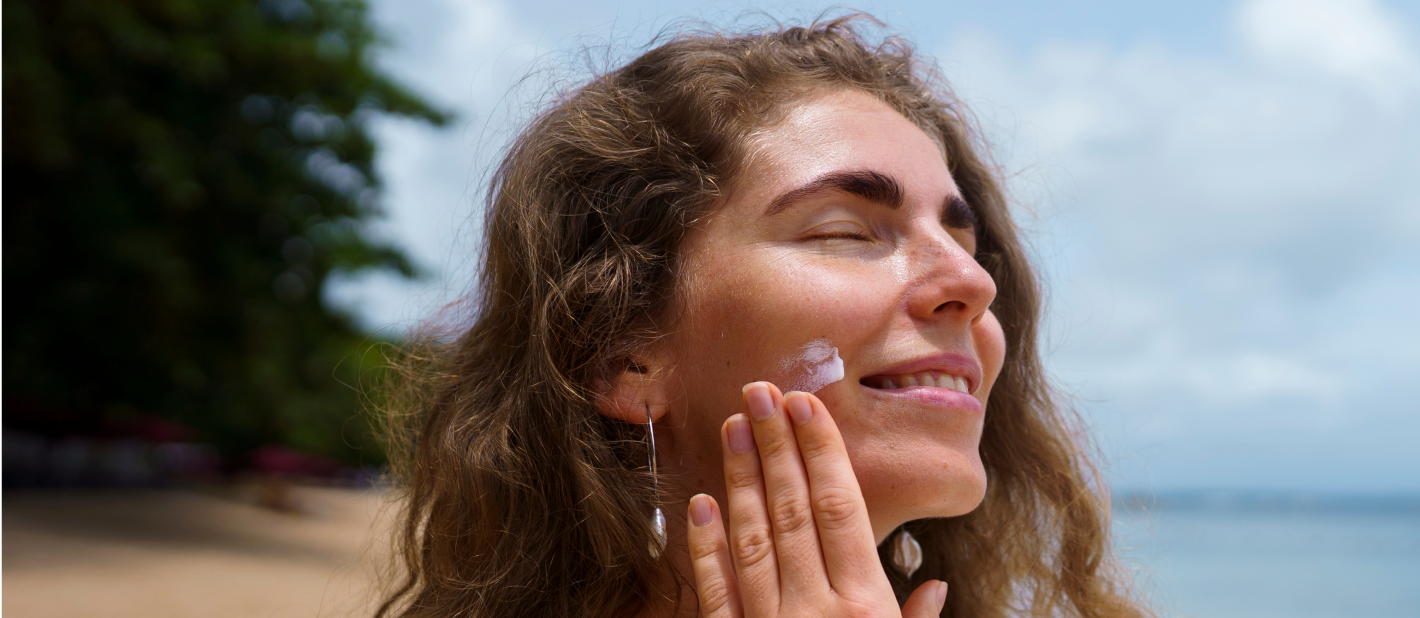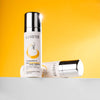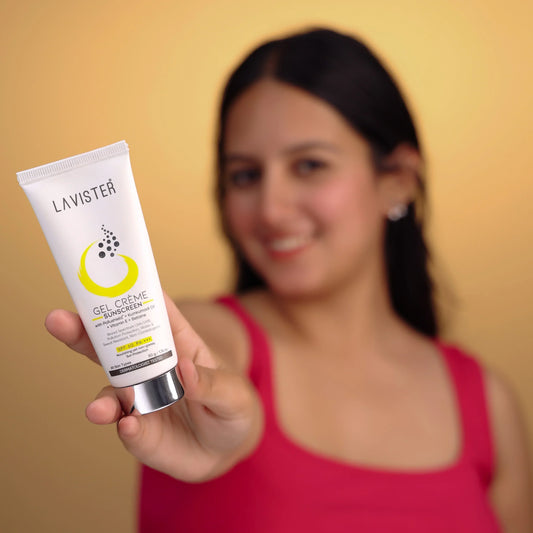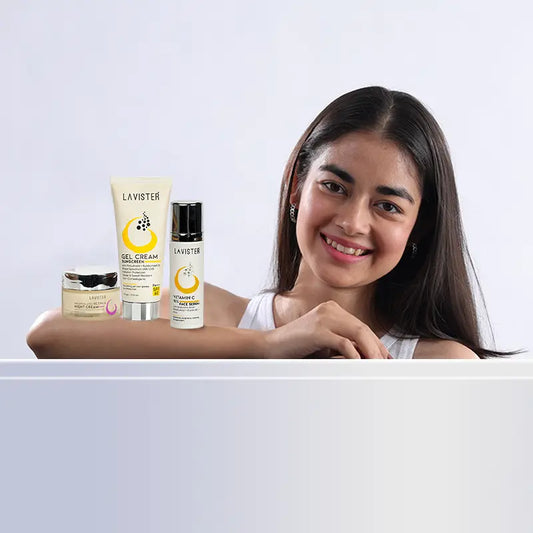
Natural Ingredients in Skincare: What to Look For and Why They Matter
Importance Of Sunscreen For Our Skin
In today’s skincare world, the emphasis on using natural ingredients is stronger than ever. People are becoming more aware of what they put on their skin, and there’s a growing desire to avoid synthetic chemicals in favor of natural, plant-based alternatives. But why are natural ingredients important, and what should you be looking for when selecting skincare products? This article will guide you through the benefits of natural ingredients, highlight the most powerful components, and explain why they matter in achieving healthy, radiant skin.
Why Natural Ingredients Matter
The skin is the body’s largest organ, and it acts as a protective barrier against environmental pollutants, toxins, and harmful chemicals. What many don’t realize is that up to 60% of what we apply to our skin is absorbed into the bloodstream. This means that choosing skincare products made with natural ingredients can have a significant impact on not just your skin’s health, but your overall well-being.
Natural skincare products tend to be gentler on the skin, reducing the likelihood of irritation and adverse reactions. Synthetic ingredients, like parabens, sulfates, and artificial fragrances, can lead to clogged pores, allergic reactions, or worse, disrupt the body's endocrine system. By focusing on natural skincare, you’re helping your skin heal and thrive without the harshness of synthetic chemicals.
What to Look for in Natural Ingredients
When choosing skincare products, it’s essential to know which natural ingredients are most beneficial and why they matter for your specific skin needs. Below is a breakdown of key natural ingredients you should consider for your skincare routine.
1. Aloe Vera
Aloe vera is a soothing powerhouse, ideal for those with sensitive or irritated skin. The gel from aloe leaves is known for its cooling properties, helping to reduce redness, inflammation, and minor skin burns. It’s rich in antioxidants, enzymes, and Vitamins A and C, making it a versatile ingredient for hydrating and healing damaged skin.
Aloe vera’s high water content also ensures that it’s incredibly moisturizing without being heavy or greasy, making it suitable for most skin types. Whether you suffer from acne, sunburns, or dry patches, aloe vera can be your go-to ingredient for calming and restoring skin.
2. Jojoba Oil
Jojoba oil closely mimics the skin’s natural sebum, making it one of the most effective oils for maintaining balanced moisture levels. It’s lightweight, non-comedogenic, and can penetrate deeply into the skin to nourish and hydrate without clogging pores.
Jojoba oil is rich in Vitamin E and B-complex vitamins, which help in skin repair and damage control. Because of its ability to balance natural oils, it is suitable for all skin types, including oily and acne-prone skin. Incorporating jojoba oil into your skincare routine can help maintain a healthy moisture barrier, reduce breakouts, and smooth the skin.
3. Shea Butter
Derived from the nuts of the shea tree, shea butter is a potent emollient packed with vitamins and fatty acids that deeply moisturize and nourish the skin. It’s especially beneficial for those with dry or dehydrated skin, as its thick consistency creates a barrier that locks in moisture.
Shea butter is also known for its anti-inflammatory properties, making it a great choice for those suffering from eczema, psoriasis, or sensitive skin. Furthermore, the presence of Vitamin A in shea butter helps to boost skin elasticity and prevent premature aging.
4. Green Tea Extract
Green tea extract is a potent antioxidant that helps protect the skin from environmental stressors like pollution and UV radiation, which can cause premature aging. Its anti-inflammatory properties make it effective in calming irritated skin and reducing redness.
Green tea is also rich in polyphenols, which help neutralize free radicals and reduce the appearance of fine lines and wrinkles. If you're looking for anti-aging benefits in your skincare, products containing green tea extract are a great option.
5. Rosehip Oil
Rosehip oil is derived from the seeds of wild rose bushes and is renowned for its ability to heal and rejuvenate the skin. It contains high levels of essential fatty acids, including linoleic and linolenic acids, which are crucial for repairing damaged skin cells and improving skin tone.
This oil is packed with vitamins, especially Vitamin C, which is known for its brightening properties. Rosehip oil also has anti-aging benefits as it helps stimulate collagen production, reducing the appearance of fine lines and scars. It’s especially beneficial for those with mature, sun-damaged, or acne-prone skin.
6. Chamomile
Chamomile is widely known for its soothing and anti-inflammatory properties. This natural herb can calm redness, irritation, and conditions like eczema and rosacea. Chamomile also contains antioxidants, which help fight against environmental stressors and promote skin healing.
Skincare products infused with chamomile can be particularly helpful for sensitive or reactive skin. Its calming nature allows the skin to restore its natural barrier function, giving it a healthier appearance over time.
7. Honey
Honey has been used in skincare for centuries due to its natural antibacterial and humectant properties. Raw honey is a powerful ingredient for treating acne because it helps to keep the skin bacteria-free and balances oily skin without stripping it of essential moisture.
Honey is also a natural exfoliant, gently removing dead skin cells and leaving the skin soft, smooth, and glowing. Rich in antioxidants, honey helps repair skin damage and promotes tissue regeneration, making it excellent for wound healing and anti-aging.
8. Tea Tree Oil
Tea tree oil is a widely celebrated essential oil for its antibacterial, antifungal, and antiviral properties. It is particularly effective in treating acne due to its ability to combat the bacteria that causes breakouts. Additionally, tea tree oil helps to regulate excess oil production, which can reduce the occurrence of clogged pores and blackheads.
When diluted in a carrier oil or included in formulations, tea tree oil can effectively treat acne without the harshness of conventional chemical treatments.
9. Cucumber Extract
Cucumber is a natural hydrator with a high water content that helps soothe and refresh the skin. It’s rich in vitamins and minerals that nourish the skin while reducing puffiness, inflammation, and irritation.
Cucumber extract is particularly useful for calming under-eye bags and rejuvenating tired-looking skin. Its cooling and anti-inflammatory properties make it an excellent ingredient in soothing and moisturizing formulations.
10. Turmeric
Turmeric is a potent anti-inflammatory and antioxidant-rich ingredient that has been used for centuries in skincare. It helps brighten the complexion, reduce hyperpigmentation, and even out skin tone. Its active component, curcumin, is responsible for its anti-inflammatory benefits, which can help soothe conditions like eczema, psoriasis, and acne.
Regular use of turmeric in skincare can result in a more radiant, even complexion while reducing redness and irritation.

Why Quality Matters
When it comes to natural skincare, the quality of the ingredients is crucial. Look for products that use organic, cold-pressed, or sustainably sourced ingredients. Avoid products with artificial fragrances, parabens, sulfates, and synthetic preservatives. Even if a product claims to be "natural," always check the ingredient list to ensure it aligns with your skincare goals.
Choosing natural skincare products means prioritizing long-term skin health over quick fixes. While synthetic ingredients might deliver immediate results, they often come at a cost to your skin's overall health. Natural ingredients, on the other hand, work in harmony with your skin, nourishing it deeply and helping it heal from within.
Beat The Heat With Lavister Sunscreen

Choose wisely when it comes to the kind of finish you want for the sunscreen. Don’t let the clouds of tanning ruin your day activities. Enjoy the sunny moments to the fullest.
Conclusion
Natural ingredients in skincare offer a safer, more holistic approach to maintaining skin health. Whether you’re dealing with acne, dryness, or aging skin, there’s likely a natural solution that can help. By being mindful of what you apply to your skin and understanding the benefits of natural ingredients, you’re empowering yourself to make healthier skincare choices that support your overall well-being.






